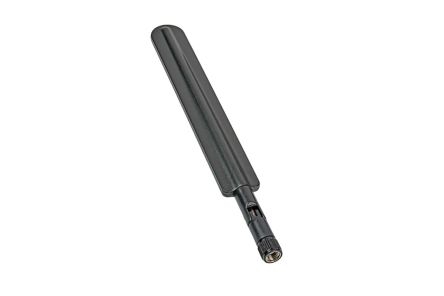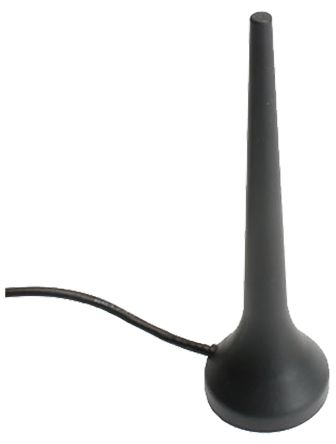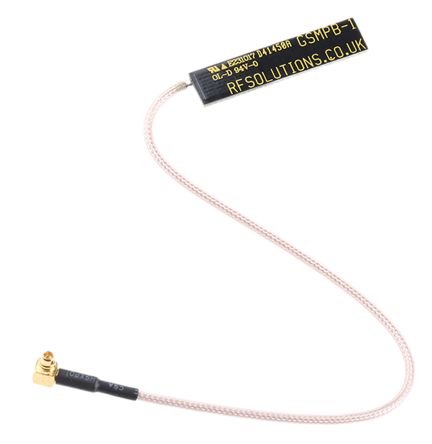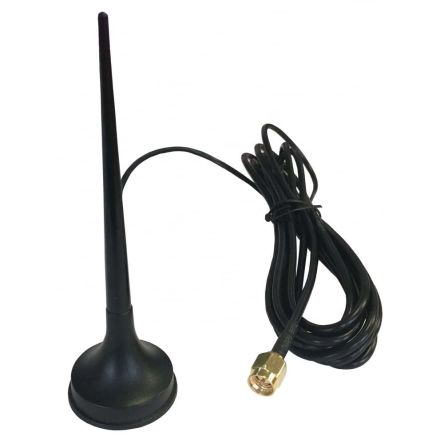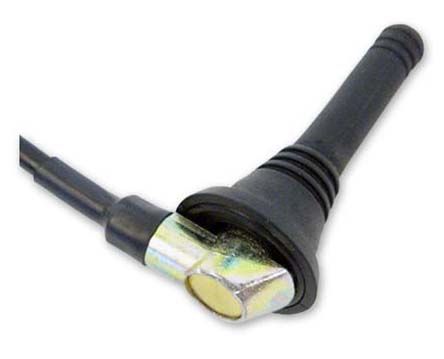- Automation & Control Gear
- Cables & Wires
- Enclosures & Server Racks
- Fuses & Circuit Breakers
- HVAC, Fans & Thermal Management
- Lighting
- Relays & Signal Conditioning
- Switches
- Batteries & Chargers
- Connectors
- Displays & Optoelectronics
- ESD Control, Cleanroom & PCB Prototyping
- Passive Components
- Power Supplies & Transformers
- Raspberry Pi, Arduino, ROCK, STEM Education & Development Tools
- Semiconductors
GSM & GPRS Antennas
Antennas are a vital component in any wireless technology. The products within GSM Antennas are optimised for the transmission and receiving of radio signals across the various mobile communication bands.
They are generally optimised to cover a range of radio frequencies. For example, a 2G antenna might be optimised to cover 850 MHz to 960 MHz and 1.7 GHz to 2.2 GHz.
Each country has its own mobile networks and the frequencies used will vary. There are worldwide standards for telecommunications - Global System for Mobile Communications - GSM.
Mobile communications have evolved rapidly and there are now a huge number of different standards. The first generation covered just voice. 2G brought full-duplex voice then General Packet Radio Service (GPRS) - basic data which evolved into EDGE. 3G enhanced the data speeds and reliability with 3GPP and UMTS. The current 4G uses the LTE Advanced standard.
GSM & GPRS Antenna types
These antennas are available in a range of shapes and styles to suit your application including:
- Whip antenna
- Stubby antenna
- Puck antenna
- Shark fin antenna
- T-Bar antenna
The most common mounting options include; adhesive mount, magnetic mount and bolted. These antennas are available with a wide range of connectors; FME, SMA, IPEX, UFL, and come supplied with a length of cable. We also supply antennas that can be integrated directly onto the PCB - SMT Antennas.
GSM Antennas are often used with a GSM and GPRS Modem or an RF Module to connect remote equipment back to a central server:
- Weather Stations
- Parking Meters
- Vehicles
- Pumping Stations
- Vending Machines
